Willem Frederik "Wim" van Eekelen (born 5 February 1931) is a retired Dutch politician,diplomat,and political scientist. [1]
Willem Frederik "Wim" van Eekelen (born 5 February 1931) is a retired Dutch politician,diplomat,and political scientist. [1]
This section of a biography of a living person needs additional citations for verification .(May 2020) |
Van Eekelen attended a Gymnasium in Utrecht from June 1943 until June 1949 and applied at the Utrecht University in June 1949 majoring in Law and obtaining a Bachelor of Laws degree in July 1951. Van Eekelen attended Princeton University and graduated in 1952 with an A.B. in politics after completing a senior thesis titled "The Marshall Plan and Its Significance for the Netherlands." [2] Van Eekelen graduated with a Master of Laws degree from the University of Utrecht in November 1954. Van Eekelen was conscripted in the Royal Netherlands Army serving in the cavalry Regiment Huzaren van Boreel as a Lieutenant from July 1956 until August 1957. Van Eekelen worked as a civil servant for the Ministry of Foreign Affairs from September 1957 until June 1977 for the Diplomatic service from September 1957 until May 1974 as an Attaché in New Delhi, India from September 1957 until January 1960 in London, England from January 1960 until February 1964. Van Eekelen later returned to the Utrecht University in February 1964 for another postgraduate education where he worked as a researcher and got a doctorate as a Doctor of Philosophy in political science on 18 November 1964.
This section of a biography of a living person needs additional citations for verification .(May 2020) |
Van Eekelen worked as Attaché in Accra, Ghana from November 1964 until October 1966 and as a senior attaché for the Permanent Representative of the Netherlands to the European Union from October 1966 until May 1971 and as a Consul for the European Economic Community from May 1971 until August 1974. Van Eekelen worked as Director-General for the department of Atlantic Cooperation and Security Affairs of the Ministry of Foreign Affairs from August 1974 until June 1977.
Van Eekelen was elected as a Member of the House of Representatives after the election of 1977, taking office on 8 June 1977. Following the cabinet formation of 1977 Van Eekelen was appointed as State Secretary for Defence in the Cabinet Van Agt–Wiegel, taking office on 20 January 1978. After the election of 1981 Van Eekelen returned as a Member of the House of Representatives, taking office on 25 August 1981. The Cabinet Van Agt–Wiegel was replaced by the Cabinet Van Agt II following the cabinet formation of 1981 on 11 September 1981. After the election of 1982 Van Eekelen was appointed State Secretary for Foreign Affairs in the Cabinet Lubbers I, taking office on 5 November 1982. After the election of 1986 Van Eekelen once again returned as a Member of the House of Representatives, taking office on 3 June 1986. Following the cabinet formation of 1986 Van Eekelen was appointed as Minister of Defence in the Cabinet Lubbers II, taking office on 14 July 1986. On 6 September 1988 Van Eekelen resigned following the conclusions of a parliamentary inquiry report into a passport fraud investigation that was mishandled by him during the time he serves as State Secretary for Foreign Affairs in the previous cabinet, his successor as State Secretary for Foreign Affairs René van der Linden subsequently resigned on 9 September 1988.

Van Eekelen remained active in national politics, in April 1989 he was nominated as Secretary General of the Western European Union, serving from 15 May 1989 until 15 November 1994. Van Eekelen was elected as a Member of the Senate after the Senate election of 1995, taking office on 13 June 1995 serving as a frontbencher chairing several [parliamentary committees. In January 2003 Van Eekelen announced his retirement from national politics and that he wouldn't stand for the Senate election of 2003 and continued to serve until the end of the parliamentary term on 10 June 2003.
Van Eekelen retired after spending 26 years in national politics and became active in the private sector and public sector and occupied numerous seats as a corporate director and nonprofit director on several boards of directors and supervisory boards (Institute for Multiparty Democracy, Achmea, Netherlands Atlantic Association, Transnational Institute, Carnegie Foundation and the Institute of International Relations Clingendael) and served as a diplomat and lobbyist for several economic delegations on behalf of the government and as an advocate and lobbyist for Democracy, NATO and European integration. [3]
Van Eekelen is known for his abilities as a negotiator and consensus builder. Van Eekelen continues to comment on political affairs as of 2024 and holds the distinction as the only Dutchman that served as Secretary General of the Western European Union. [4]
| Honours | ||||
| Ribbon bar | Honour | Country | Date | Comment |
|---|---|---|---|---|
| | Grand Cross of the Order of Merit | Germany | 12 October 1984 | |
| | Grand Officer of the Order of Leopold II | Belgium | 15 September 1986 | |
| | Grand Officer of the Legion of Honour | France | 17 February 1987 | |
| | Grand Officer of the Order of Orange-Nassau | Netherlands | 10 December 1988 | |
| | Commander of the Order of the Netherlands Lion | Netherlands | 20 November 1994 | Elevated from Knight (26 October 1981) |
| | Commander's Cross of the Order of Merit | Poland | 6 May 1998 | |
| | Commander of the Order of the Star | Romania | 13 June 2018 | [5] |

Henri "Hans" van den Broek is a retired Dutch politician and diplomat of the defunct Catholic People's Party (KVP) and later the Christian Democratic Appeal (CDA) party and jurist who served as European Commissioner from 6 January 1993 until 16 September 1999.
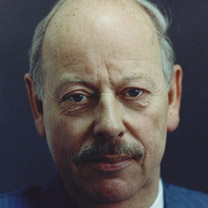
Pieter Hendrik "Peter" Kooijmans was a Dutch politician, jurist, and diplomat. He was a member of the defunct Anti-Revolutionary Party (ARP), which later merged into the Christian Democratic Appeal (CDA) party. From 1993 to 1994, he served as Foreign Minister of the Netherlands, succeeding Hans van den Broek. In 1995, he returned to his former position as Professor of Public International Law at the University of Leiden, serving until his appointment to the International Court of Justice. He was granted the honorary title of Minister of State on 13 July 2007.

The second Lubbers cabinet was the executive branch of the Dutch Government from 14 July 1986 until 7 November 1989. The cabinet was a continuation of the previous First Lubbers cabinet and was formed by the Christian-democratic Christian Democratic Appeal (CDA) and the conservative-liberal People's Party for Freedom and Democracy (VVD) after the election of 1986. The cabinet was a centre-right coalition and had a substantial majority in the House of Representatives with Christian-Democratic Leader Ruud Lubbers serving Prime Minister. Former Liberal Leader Rudolf de Korte the Minister of the Interior in the previous cabinet served as Deputy Prime Minister and Minister of Economic Affairs.
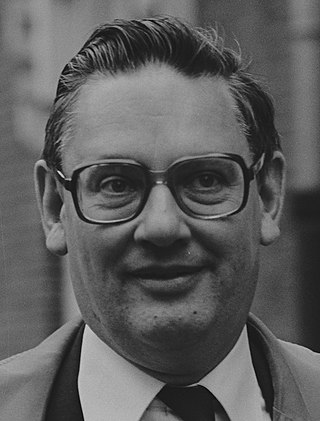
Gijsbert Michiel Vredenrijk "Gijs" van Aardenne was a Dutch politician of the People's Party for Freedom and Democracy (VVD) and businessperson.

Willem Joost "Wim" Deetman is a retired Dutch politician and teacher who served as Minister of Education and Sciences from 1982 to 1989, Speaker of the House of Representatives from 1989 to 1996 and Mayor of The Hague from 1996 until 2008. He was a member of the Christian Historical Union (CHU) until it was merged into the Christian Democratic Appeal (CDA) in 1980, which he joined.

Hendrik Jan "Henk" Zeevalking was a Dutch politician and co-founder of the Democrats 66 (D66) party and jurist.

Gerardus Johannes Maria "Gerrit" Braks was a Dutch politician of the defunct Catholic People's Party (KVP) and later the Christian Democratic Appeal (CDA) party and agronomist.
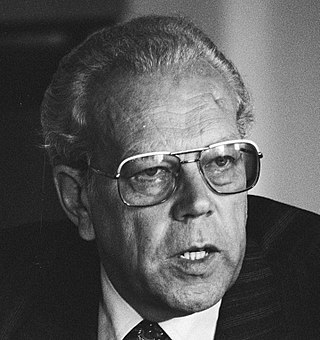
Willem Albeda was a Dutch politician of the defunct Anti-Revolutionary Party (ARP) and later of the Christian Democratic Appeal (CDA) party and economist.

Marius Johannes Josephus van Amelsvoort was a Dutch politician and diplomat of the defunct Catholic People's Party (KVP) party and later the Christian Democratic Appeal (CDA) party and economist.

Cornelis Pieter "Kees" van Dijk was a Dutch politician of the Christian Historical Union (CHU) party and later the Christian Democratic Appeal (CDA) party and economist.
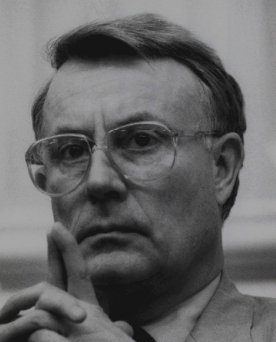
Hendrik Elle "Henk" Koning was a Dutch politician of the People's Party for Freedom and Democracy (VVD) and economist.

Jan de Koning was a Dutch politician of the defunct Anti-Revolutionary Party (ARP) and later the Christian Democratic Appeal (CDA) party and social geographer.
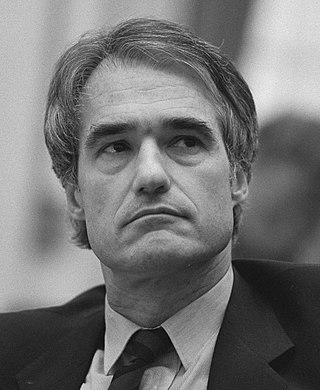
Rudolf Willem de Korte was a Dutch politician of the People's Party for Freedom and Democracy (VVD) and businessman.
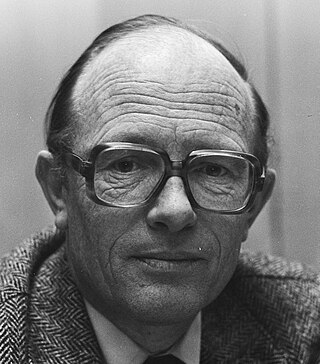
Jacobus Gijsbert "Koos" Rietkerk was a Dutch politician of the People's Party for Freedom and Democracy (VVD) and jurist.
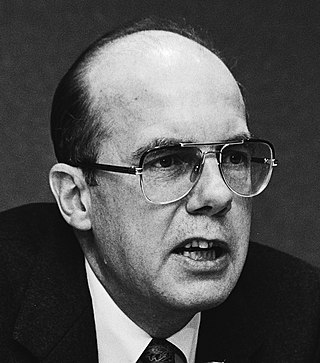
Jacob "Job" de Ruiter was a Dutch politician and diplomat of the defunct Anti-Revolutionary Party (ARP) party and later the Christian Democratic Appeal (CDA) party and jurist.

Alphonsus Petrus Johannes Mathildus Maria "Fons" van der Stee was a Dutch politician of the defunct Catholic People's Party (KVP) and later the Christian Democratic Appeal (CDA) party and economist.
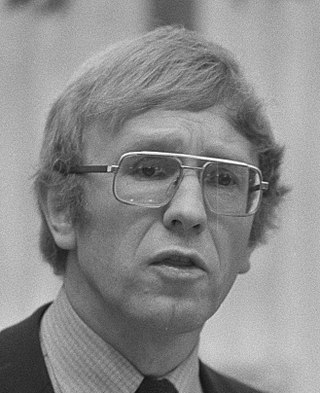
Abraham "Bram" Stemerdink is a retired Dutch politician of the Labour Party (PvdA) and army officer.

Jan van Houwelingen was a Dutch politician of the defunct Anti-Revolutionary Party (ARP) later the Christian Democratic Appeal (CDA) party and chemist.

Virginie Norbertina Maria Korte-van Hemel was a Dutch politician of the Catholic People's Party (KVP) and jurist.

Louw de Graaf was a Dutch politician of the Anti-Revolutionary Party (ARP) and later the Christian Democratic Appeal (CDA) party and trade union leader.
{{cite journal}}: Cite journal requires |journal= (help)